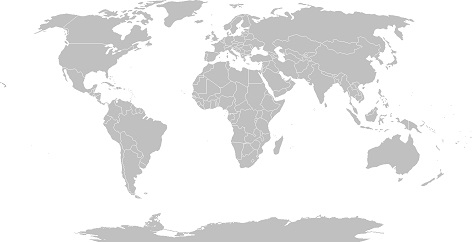F
ew would fault Michael Clemens for lacking optimism. In a world where the most pressing public policy dilemmas appear to be the most intractable, this Harvard-trained economist’s research offers policymakers one simple prescription for growth: Abolish migration restrictions. Clemens’ seminal 2011 paper, “Economics and Emigration: Trillion-Dollar Bills on the Sidewalk,” suggests that enormous productivity gains lay hidden in plain sight, held captive by “the greatest single class of distortions in the global economy.” Immigration controls remain popular in developed nations – of the 60% of Americans who claim to be “somewhat” or “very” dissatisfied with current immigration levels, 39% wish to decrease the number of immigrants accepted, while only 7% wish to admit more. However, a growing number of economists have come to believe that migration restrictions are the primary culprit in limiting the productivity of workers who reside in underdeveloped regions.
Clemens’ assessment of the outcomes of migration on migrants, their home countries, and their host countries reveals that the enactment of a global open-borders policy would lead to a tremendous increase in economic output. These gains would dwarf those arising from the abolition of restrictions on international trade and capital flows. While the most optimistic estimates for the efficiency gains associated with removing all remaining policy barriers to trade stand at 4.1% of world GDP, estimates of gains arising from the abolition of barriers to labour mobility range from 67% to 147.3% of world GDP. Assuming a mid-range estimate which calls for a doubling of world GDP, the increase in global economic output would be on the order of 107.5 trillion USD per year at purchasing power parity.

The intuition behind this phenomenon is quite simple: there is no reason to assume a priorithat workers in underdeveloped nations are inherently less productive than those in developed nations. The productivity gap between developed nations and their underdeveloped counterparts is a result of poor infrastructure, dysfunctional institutions and lack of access to capital. If one transplants a worker of a given skill level from an underdeveloped nation to a developed nation, their productivity should begin to approach that of similar workers in their host country. (In fact, first-generation immigrant productivity tends to top out at two-thirds of native productivity due to language barriers and other cultural factors.) To illustrate the point, consider that a hypothetical unskilled worker would generate far less output as a subsistence farmer than as a labourer on a plot of land undergoing intensive farming in a developed nation.
Consider also that developed nations are far better able to educate unskilled workers and turn them into skilled workers. Research into the rate of total factor productivity (TFP) growth in OECD countries has found that educational attainment is strongly correlated with increased levels of innovation, which is itself correlated with increased TFP growth in the long term. Severely underdeveloped nations are scarcely able to muster the resources necessary to invest in their stock of human capital. Open borders would grant citizens of such nations the opportunity to realize gains in educational attainment that would benefit both them and their host countries.
Does immigration reduce wages in host countries? Extensive research has shown that Mexican immigration to the USA leads to a small reduction (3.3%) in wages in the short term, which disappears in the long term. The distribution of this impact is not perfectly symmetrical – college graduates benefit relative to a scenario where there is no immigration, while high school dropouts experience a 4.8% long-term reduction in wages. Though these effects are real, their extent is nowhere near that predicted by anti-immigration advocates. Additionally, the high school dropout rate currently stands at only 7% in the United States. Though there has been much hand-wringing about the fate of unskilled workers in America, the vast majority of American workers are skilled by global standards and thus stand to benefit from open borders.
There will remain significant opposition to the implementation of a global open borders policy throughout the foreseeable future. This opposition is not unjustified. While it is plausible that productivity would skyrocket as a consequence of vastly increased labour mobility, the resulting wave of migration would be unprecedented in scale and could carry with it a host of unintended consequences. Next week, I will examine how the large-scale emigration of skilled workers could impact the development of low-income countries.




